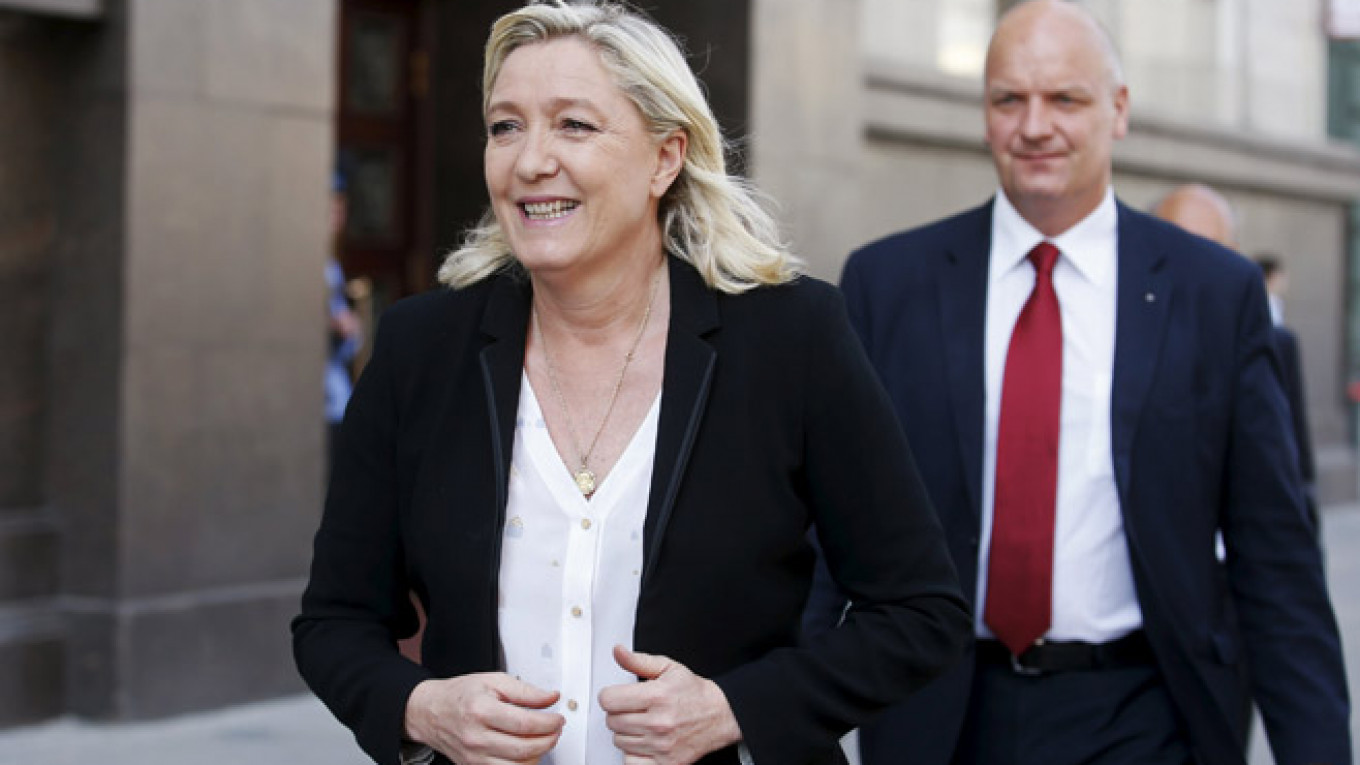French far-right National Front leader Marine Le Pen met a senior Russian official in Moscow on Tuesday, underlining her party's regular ties with the Kremlin despite East-West tensions smoldering over Ukraine.
Le Pen, whose anti-immigrant, eurosceptic party previously secured a major loan from a Russian-owned bank, has fiercely criticized the West's policy toward Russia over the conflict in Ukraine as overly hostile to Moscow.
She emerged from the building of Russian parliament's lower chamber on Tuesday after holding more than an hour of talks there with Speaker Sergei Naryshkin, a senior Russian statesman close to the Kremlin.
"Mr. Naryshkin and I see each other roughly once a year," said Le Pen, who is seen as a major contender in presidential elections due in France in 2017.
"It is important that the representative of the leading party of France, which is what I am, should be able to discuss the situation in Europe, in the world. We touched on the situation in Ukraine, we also talked about the very serious situation with the Islamic State [insurgents]."
Le Pen's party won the highest share of the vote in France in last year's European Parliament elections. But the center-right UMP party emerged as the clear leader in local elections in March and Le Pen herself is seen as only an outside bet for the presidential election due in 2017.
Naryshkin told Le Pen that her party was "among the leading political forces in France," according to a short statement on the meeting posted on the Duma website.
Le Pen's party secured loans worth 9 million euros ($9.83 million) from a Russian-owned bank but Le Pen said Tuesday that getting any further loans was "not at all the purpose" of her visit.
She declined to say what other meetings she had during her "very short" visit to Moscow, which cherishes ties with certain European figures who could apply further pressure on the EU's increasingly troubled unity over Ukraine.
The bloc slapped sanctions on Russia after its annexation of Crimea from Ukraine last year and has stepped them up since, saying Moscow is driving a pro-Russian separatist rebellion in east Ukraine that ensued. Moscow denies the accusations.
A Message from The Moscow Times:
Dear readers,
We are facing unprecedented challenges. Russia's Prosecutor General's Office has designated The Moscow Times as an "undesirable" organization, criminalizing our work and putting our staff at risk of prosecution. This follows our earlier unjust labeling as a "foreign agent."
These actions are direct attempts to silence independent journalism in Russia. The authorities claim our work "discredits the decisions of the Russian leadership." We see things differently: we strive to provide accurate, unbiased reporting on Russia.
We, the journalists of The Moscow Times, refuse to be silenced. But to continue our work, we need your help.
Your support, no matter how small, makes a world of difference. If you can, please support us monthly starting from just $2. It's quick to set up, and every contribution makes a significant impact.
By supporting The Moscow Times, you're defending open, independent journalism in the face of repression. Thank you for standing with us.
Remind me later.






